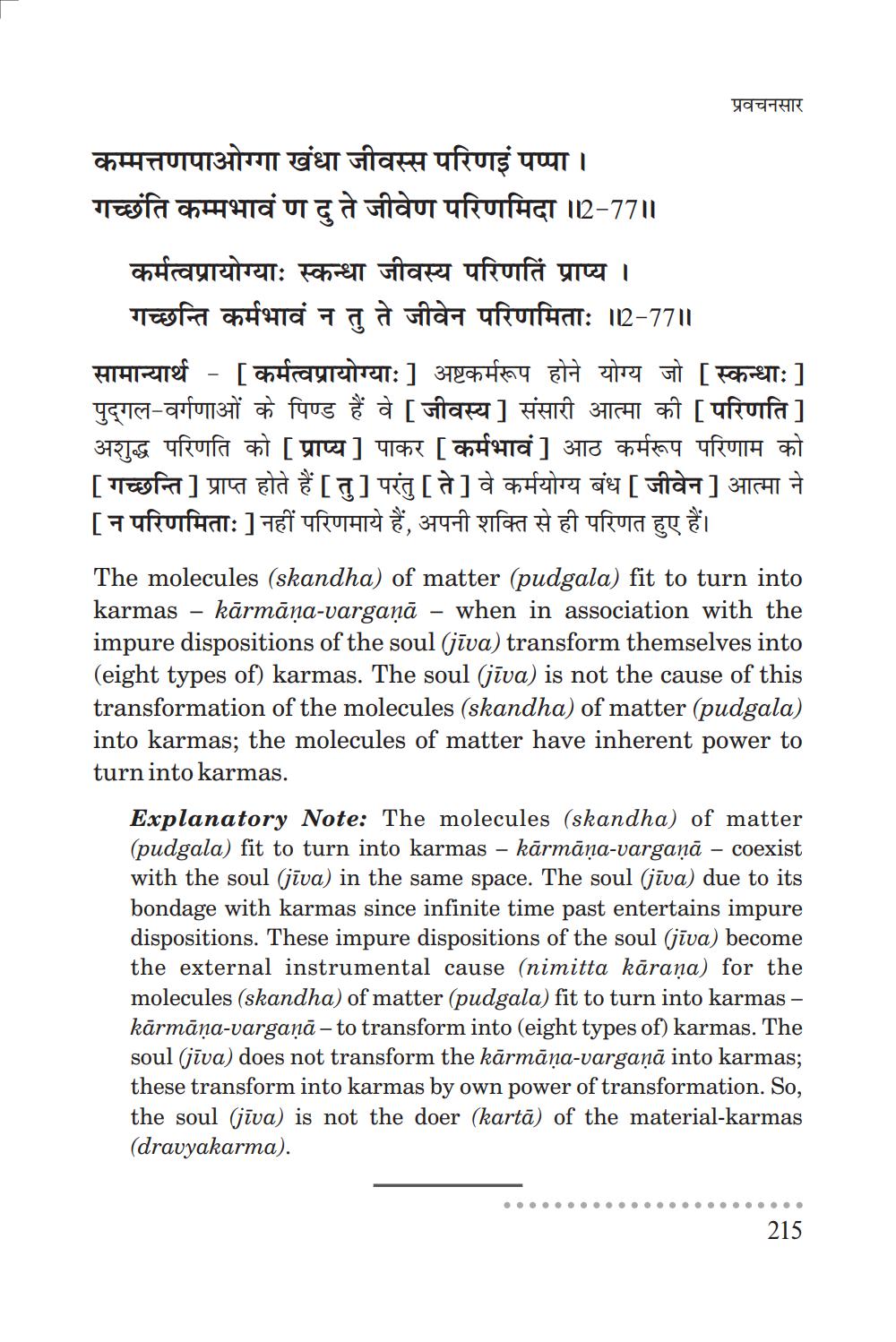________________
कम्मत्तणपाओग्गा खंधा जीवस्स परिणइं पप्पा | गच्छंति कम्मभावं ण दु ते जीवेण परिणमिदा ॥2-77॥
प्रवचनसार
कर्मत्वप्रायोग्याः स्कन्धा जीवस्य परिणतिं प्राप्य । गच्छन्ति कर्मभावं न तु ते जीवेन परिणमिताः ॥2-77॥ सामान्यार्थ [ कर्मत्वप्रायोग्याः ] अष्टकर्मरूप होने योग्य जो [ स्कन्धाः ] पुद्गल-वर्गणाओं के पिण्ड हैं वे [ जीवस्य ] संसारी आत्मा की [ परिणति ] अशुद्ध परिणति को [ प्राप्य ] पाकर [ कर्मभावं ] आठ कर्मरूप परिणाम को [ गच्छन्ति ] प्राप्त होते हैं [ तु ] परंतु [ ते ] वे कर्मयोग्य बंध [ जीवेन ] आत्मा ने [ न परिणमिताः ] नहीं परिणमाये हैं, अपनी शक्ति से ही परिणत हुए हैं।
The molecules ( skandha) of matter (pudgala) fit to turn into karmas kārmāṇa-vargaṇā when in association with the impure dispositions of the soul (jiva) transform themselves into (eight types of) karmas. The soul (jīva) is not the cause of this transformation of the molecules (skandha) of matter (pudgala) into karmas; the molecules of matter have inherent power to turn into karmas.
-
Explanatory Note: The molecules (skandha) of matter (pudgala) fit to turn into karmas - kārmāna-varganā - coexist with the soul (jiva) in the same space. The soul (jiva) due to its bondage with karmas since infinite time past entertains impure dispositions. These impure dispositions of the soul (jiva) become the external instrumental cause (nimitta karana) for the molecules (skandha) of matter (pudgala) fit to turn into karmas - kārmāna-varganā- to transform into (eight types of) karmas. The soul (jiva) does not transform the kārmāṇa-vargaṇā into karmas; these transform into karmas by own power of transformation. So, the soul (jīva) is not the doer (kartā) of the material-karmas (dravyakarma).
215




